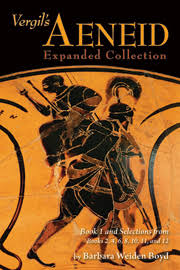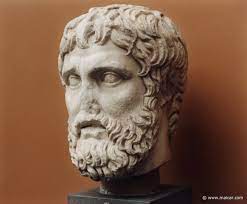Kloodle is highlighted as the digital solution for character education by the Jubilee Centre for Character & Virtues
The Purpose Of Role Models in Society
Role models serve as beacons of moral guidance, providing individuals, usually young people, with exemplars to shape their values and aspirations. They embody the virtues and values that society deems to be important, offering a tangible representation of what it means to lead a principled life and ‘develop a strong moral compass’. Role models can also inspire individuals to strive for excellence, instilling a sense of purpose and direction in their pursuits and their lives.
Usually, the role model is someone to look up to, perhaps in a position of authority. It might be: a member of the family, say a parent, uncle or aunt; a person in the wider community, such a teacher at school; or a sportsperson or politician who appears on the television or in the newspapers.
As James Baldwin, the author, said: “Children have never been very good at listening to their elders, but they have never failed to imitate them.”
The Decline of Role Models in Modern Society and the Growing Need
In contemporary societies, the lamentable decline of role models can be observed across various domains, from politics to entertainment. This is partly driven by the media seeking to produce shock-horror headlines about bad behaviour; the sad fact is that bad behaviour stories sell more news than good behaviour. Either way, the scarcity of prominent figures embodying virtuous qualities is evident, leaving a void in guiding young minds towards moral and virtuous paths, or ‘doing the right thing’. This dearth of role models has amplified the need for individuals to seek inspiration as young people with positive role models develop a strong sense of self-worth and self-esteem. Much of our personality stems from the personalities of available role models.
The erosion of trust in public figures and the exposure of flaws in once-revered individuals have contributed to this disillusionment. A recent survey found that 63% of people believed that high profile figures like politicians are ‘out for themselves’, much higher than 30 years ago. Consequently, young people are left with fewer exemplary figures to look up to, resulting in a ‘moral vacuum’ that needs to be addressed. This lack of role models not only deprives the youth of positive influences but also hinders the development of a strong moral compass.
Yet, this isn’t a new trend.
Humans Have Always Sought Role Models: It Is An Ancient Tradition
Role models have always played a vital role in shaping societal values and providing individuals, especially the younger generations, with aspirational figures to emulate. The need for role models is not a recent phenomenon but has roots that extend back throughout history to ancient times. In cultures like the Romans, virtuous paragons were highly esteemed, as they were believed to mirror the qualities and virtues crucial for the well-being of the community. The Aeneid, a timeless epic poem written by Virgil during the reign of Augustus Caesar, stands as a prime example of this tradition.  The poem was intended to be read out as an adventure story to a largely illiterate audience and through his exploits, the impressive character of the revered Trojan hero, Aeneas, is revealed. The poem conveys a profound moral message, illustrating throughout the importance of duty, sacrifice, and piety.
The poem was intended to be read out as an adventure story to a largely illiterate audience and through his exploits, the impressive character of the revered Trojan hero, Aeneas, is revealed. The poem conveys a profound moral message, illustrating throughout the importance of duty, sacrifice, and piety.
Aeneas Embodied Roman Values
 Aeneas’s character exemplifies the quintessential Roman values that were highly prized in ancient society. His unwavering devotion to gods, homeland, and relatives, encapsulated by the Latin term ‘pietas‘ made him a paragon of reliability, piety, and love. Aeneas’s commitment to fulfilling acts of providence and his sense of duty to both gods and destiny re-emphasised the Roman ideals of discipline and obedience.
Aeneas’s character exemplifies the quintessential Roman values that were highly prized in ancient society. His unwavering devotion to gods, homeland, and relatives, encapsulated by the Latin term ‘pietas‘ made him a paragon of reliability, piety, and love. Aeneas’s commitment to fulfilling acts of providence and his sense of duty to both gods and destiny re-emphasised the Roman ideals of discipline and obedience.
Aeneas Demonstrated Timeless Character Traits
Although the Aeneid was set in a different and distant era, one of gods and slaves, some of the character lessons are still pertinent today. My favourite scene is in Book 1 when Aeneas stands up to make a speech to his desperate and despondent family and friends. Having fled Troy, in ruins burning from the Greek invaders, the survivors headed for Latium in Italy. A violent storm dispersed their ships smashing them on the reefs just off Carthage in North Africa, along with Aeneas’ hopes and dreams. Rather than give up, he showed great resilience, determination and leadership to rouse his fellow Trojans for the trials ahead. “Forsan et haec olim meminisse iuvabit“, he proclaimed, translated as “one day, we’ll look back at this and laugh.” The message is: Never give up!
Aeneas Was An Exceptional Leader with Great Judgement
Aeneas led by example and his leadership was characterized by his impeccable judgement, a quality highly regarded in Roman culture. Along his journey from when he left his enflamed hometown of Troy to when he arrived in Latium to meet his destiny and found the eternal city of Rome, he had to make lots of tough decisions, but showed discernment.
In a diverse range of situations, Aeneas is able to apply ‘good judgement’, something described as ‘practical wisdom’ by academics or ‘phronesis’ by the Greek philosophers, it is the ultimate goal of character education. For example, Aeneas’s prudent choice to leave the burning city of Troy, prioritizing the safety and welfare of his people, exemplifies his exceptional judgement.
 The Jubilee Centre of Character and Virtues at Birmingham University defines phronesis as: “practical wisdom, which is the overarching guide to knowing what to want and what not to want, when the demands of two or more virtues collide, and to integrate such demands into an acceptable course of action.”
The Jubilee Centre of Character and Virtues at Birmingham University defines phronesis as: “practical wisdom, which is the overarching guide to knowing what to want and what not to want, when the demands of two or more virtues collide, and to integrate such demands into an acceptable course of action.”
Balancing Duty and Emotions: Aeneas Was ‘Duty-Bound’
Aeneas grapples with the tension between duty and emotions, particularly in matters of love. He is often described as ‘duty-bound’ highlighting his total commitment to fulfilling his responsibilities, even in the face of personal desires. This internal struggle serves as a testament to Aeneas’s strength of character and his prioritization of the greater good over individual emotions. This is epitomised when he decides to leave Dido, the Queen of Carthage, with whom he was in love, in order to persist with his journey to Latium, putting the need of his community ahead of his own wants and desires. This showed excellent awareness of the importance of the greater good.
Summing Up
In an era marked by reduction in contemporary role models, the timeless narrative of Aeneas’ story offers a guide of morality and ‘doing the right thing’. It is worth reading or listening to it. Aeneas’s character embodies virtues that are universally valued, providing a source of inspiration for individuals even today seeking to navigate the complexities of life with integrity and purpose. As societies grapple with the challenge of nurturing values-driven individuals, the study of ancient epics like the Aeneid serves as a powerful reminder of the enduring significance of role models in shaping the moral fabric of humanity.

